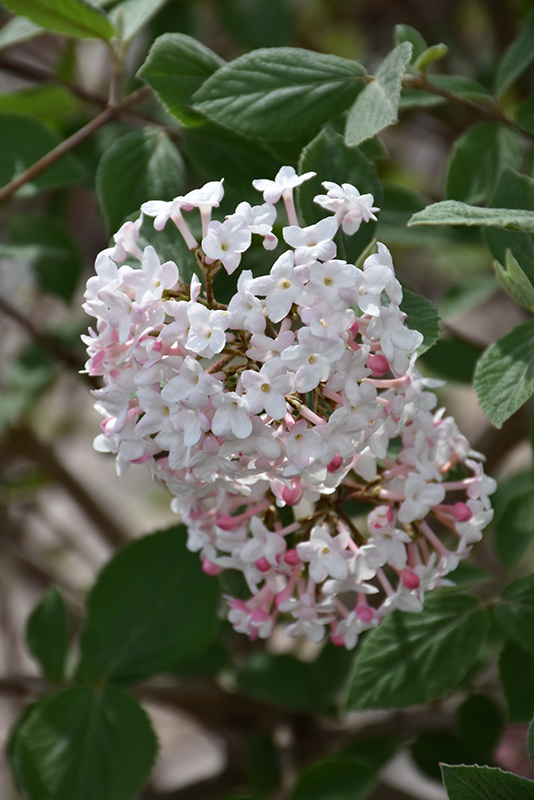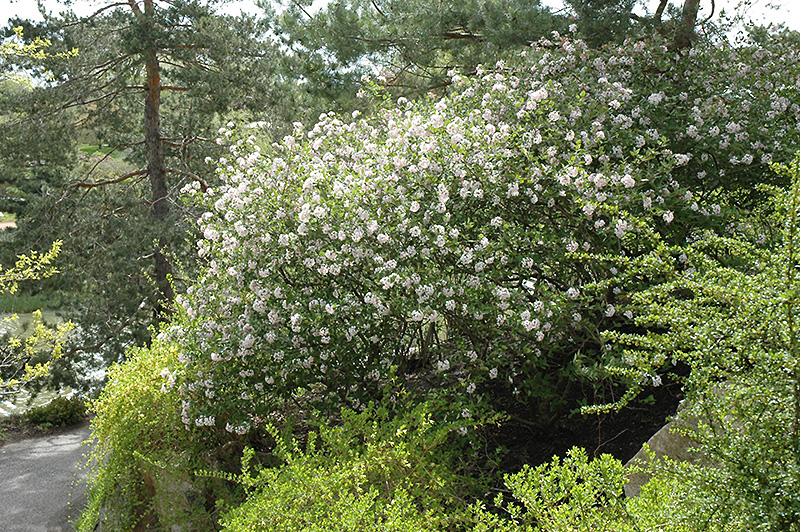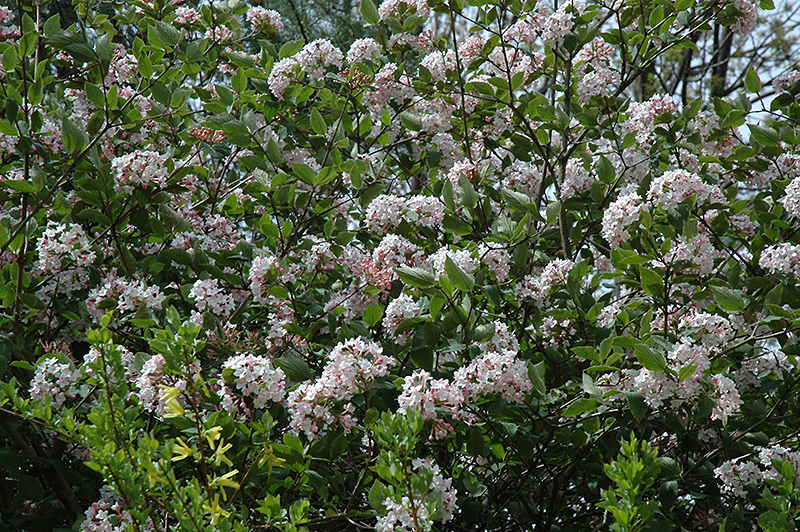Height: 7 feet
Spread: 7 feet
Sunlight:
![]()
![]()
Hardiness Zone: 4b
Description:
An intoxicatingly fragrant garden shrub when in bloom, covered in rounded clusters of white flowers in early spring, plant where the fragrance can be enjoyed, tidy the rest of the year; a superb specimen plant for the shrub garden
Ornamental Features
Judd's Viburnum features showy clusters of fragrant white flowers at the ends of the branches in early spring, which emerge from distinctive pink flower buds before the leaves. The black fruits are held in abundance in spectacular clusters from late summer to late winter. It has dark green deciduous foliage. The round leaves turn an outstanding deep purple in the fall.
Landscape Attributes
Judd's Viburnum is a multi-stemmed deciduous shrub with a more or less rounded form. Its average texture blends into the landscape, but can be balanced by one or two finer or coarser trees or shrubs for an effective composition.
This is a relatively low maintenance shrub, and should only be pruned after flowering to avoid removing any of the current season's flowers. It is a good choice for attracting birds to your yard, but is not particularly attractive to deer who tend to leave it alone in favor of tastier treats. It has no significant negative characteristics.
Judd's Viburnum is recommended for the following landscape applications;
- Accent
- Mass Planting
- Hedges/Screening
- General Garden Use
Planting & Growing
Judd's Viburnum will grow to be about 7 feet tall at maturity, with a spread of 7 feet. It tends to fill out right to the ground and therefore doesn't necessarily require facer plants in front, and is suitable for planting under power lines. It grows at a medium rate, and under ideal conditions can be expected to live for 40 years or more.
This shrub does best in full sun to partial shade. It prefers to grow in average to moist conditions, and shouldn't be allowed to dry out. It is not particular as to soil type or pH. It is highly tolerant of urban pollution and will even thrive in inner city environments. This particular variety is an interspecific hybrid.









